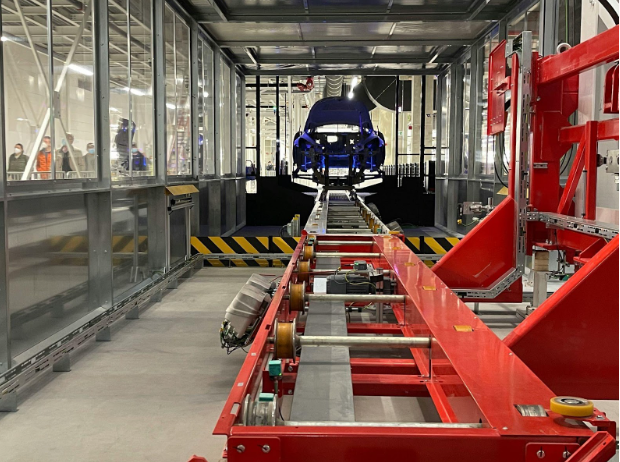
The automotive manufacturing industry is dynamic, but with its complexity comes a range of challenges that can disrupt operations. As someone working in the field, staying ahead of these challenges and adopting effective automotive manufacturing solutions is key to maintaining smooth and efficient production. Below, we explore common challenges in automotive manufacturing, their solutions, and how manufacturing consulting can support improvement.
Table of Contents
Common Challenges in Automotive Manufacturing
1. Supply Chain Disruptions
Global supply chains in the automotive industry are highly interconnected, and disruptions can have significant consequences. Events like the semiconductor shortage have affected vehicle production worldwide, leading to delays and increased costs. Supply chain vulnerabilities are also impacted by geopolitical instability and unpredictable global events like natural disasters or pandemics.
Solution:
- Diversify Suppliers: By working with multiple suppliers across different regions, manufacturers can reduce dependency on a single source and mitigate risks associated with supply chain disruptions.
- Improve Forecasting: Utilizing advanced data analytics to predict demand and supply needs can help manufacturers plan more effectively and anticipate shortages before they impact production.
- Localize Supply Chains: Exploring nearshoring or local supply chain options can reduce reliance on international suppliers and improve the speed and flexibility of deliveries.
2. Material Shortages and Rising Costs
The automotive industry relies on a wide range of raw materials such as steel, aluminum, lithium, and plastics. Fluctuations in the availability of these materials or sudden price hikes can significantly affect production costs. With the increasing shift toward electric vehicles (EVs), there’s also rising demand for specific materials like lithium for batteries, putting additional pressure on manufacturers.
Solution:
- Optimize Inventory Management: Adopting just-in-case inventory models (as opposed to just-in-time) can ensure that manufacturers have a buffer against material shortages.
- Alternative Materials: Exploring new materials or composites can help mitigate reliance on traditional resources. For example, lightweight composites may replace steel or aluminum in certain vehicle components.
- Negotiate Long-Term Contracts: Locking in prices for key materials or partnering with suppliers for long-term agreements can help stabilize costs and reduce volatility.
3. Labor Shortages and Skill Gaps
A growing skills gap in the workforce is a significant challenge for automotive manufacturers. The rapid adoption of automation, robotics, and new manufacturing technologies requires workers with specialized knowledge. However, finding talent with the necessary skills is increasingly difficult, especially as the existing workforce ages and many experienced workers retire.
Solution:
- Upskill Existing Employees: Offering training programs to current employees, including upskilling in new technologies such as robotics and AI, ensures that the workforce evolves alongside the industry.
- Partner with Educational Institutions: Collaboration with universities, technical colleges, and trade schools can help create a pipeline of skilled workers. Internship programs and apprenticeships can also help develop the next generation of talent.
- Attract Diverse Talent: Expanding recruitment efforts to attract a more diverse pool of candidates, including those with backgrounds in tech or STEM, can help bridge the skills gap and introduce new perspectives.
4. Technological Integration
The adoption of new technologies such as AI, automation, and the Internet of Things (IoT) is essential for improving manufacturing efficiency. However, integrating these advanced technologies into existing manufacturing systems can be complex, requiring a significant investment in both time and resources.
Solution:
- Pilot Programs: Start with small-scale pilot programs to test the effectiveness of new technologies before full-scale implementation. This allows manufacturers to troubleshoot issues and assess the return on investment.
- Data-Driven Decisions: Leverage data analytics to make more informed decisions about where to implement technology. By monitoring key performance indicators (KPIs), manufacturers can identify areas of inefficiency and apply automation where it will have the most significant impact.
- Partner with Tech Experts: Collaborating with technology providers or consultants can help ensure smooth integration and avoid costly mistakes. These experts bring valuable insights into choosing the right solutions for your specific production needs.
5. Regulatory Compliance
The automotive industry is heavily regulated, with manufacturers needing to comply with various environmental, safety, and quality standards. These regulations are often complex and frequently updated, requiring manufacturers to invest in compliance programs to avoid fines, penalties, and product recalls.
Solution:
- Stay Proactive: Implement a system for regularly monitoring regulatory changes, ensuring that the company remains up-to-date with the latest requirements.
- Build a Compliance Culture: Foster a company-wide culture of compliance that includes training programs, internal audits, and regular assessments to identify potential areas of non-compliance before they become issues.
- Sustainable Technologies: Investing in green technologies and eco-friendly materials not only helps with compliance but can also improve brand reputation and meet growing consumer demand for environmentally conscious products.
Identifying Bottlenecks in Production
Bottlenecks are one of the most significant barriers to efficiency in any manufacturing environment. They can occur in various stages of production, from raw material handling to assembly lines. Identifying and addressing these bottlenecks is crucial to improving throughput and reducing costs.
To spot bottlenecks:
- Use Data Analytics: Analyze production data in real-time to identify areas where work is slowing down or machines are frequently idle. Machine downtime, delays in material handling, or quality control processes can often signal a bottleneck.
- Conduct Workflow Audits: Regularly review workflows across different production stages. Observing manual processes and testing equipment performance can help pinpoint inefficiencies.
- Employee Feedback: Frontline workers often have the best insight into where production slows. Encourage communication and gather feedback to help identify problem areas.
Once bottlenecks are identified, companies can take steps like rebalancing workloads, upgrading equipment, or adjusting workflows to eliminate delays and boost productivity.
How Manufacturing Consulting Can Help
When internal resources fall short or bottlenecks persist, partnering with a manufacturing consultant can provide the expertise needed to improve operations. Consultants like MCA Connect specialize in optimizing production systems, integrating new technologies, and solving persistent challenges in automotive manufacturing. Here’s how they can help:


